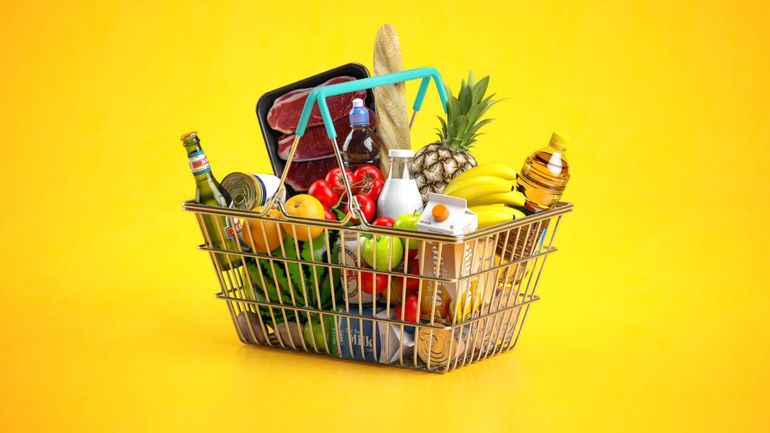
Retail sales exceed inflation amidst delicate consumer sentiment

March data from the British Retail Consortium reveals a notable surge in food sales, attributed to an early Easter period, despite prevailing concerns over consumer confidence.
Source: Shutterstock
Retail sales in March saw a rise above the inflation rate for the first time in over two years, as reported by the British Retail Consortium (BRC).
According to BRC figures, total retail sales in the UK increased by 3.5% year-over-year in the five weeks leading up to 30 March. This growth surpassed the three-month average of 2.1% and the 12-month average of 2.9%.
The Office for National Statistics (ONS) has released new data on inflation, indicating that the Consumer Price Index (CPI) has gone up by 3.4% in the 12 months leading up to February. As a result, retail sales have seen a growth higher than inflation for the first time in more than two years.
In the same period, food sales have experienced a significant increase of 6.8% year-on-year throughout the three months until March, showing continued growth year after year.
Grocers experienced a notable increase in sales volume in March, as stated by IGD CEO Sarah Bradbury. She mentioned that this growth has been consistent for the past four months, giving retailers and suppliers optimism for recovering margins that were impacted by the cost-of-living challenges.
Retailers and brands in various industries have noticed a decrease in sales due to inflation and the cost of living crisis. Instead of selling more products, retailers have been relying on higher prices to drive sales growth.
In the supermarket sector, which is known for its fierce price competition, this trend has led to a squeeze on profit margins. As costs continue to rise, consumers are choosing to buy cheaper alternatives to save money.
Consumers are choosing to purchase more food, leading to a return to volume growth. This trend will help supermarkets alleviate margin pressures by strengthening their value propositions through promotions and loyalty programs.
Sainsbury's introduced a new program called 'Low Everyday Prices' last week, providing value for branded products. Meanwhile, Waitrose and Aldi have also committed to competitive pricing strategies in response to the intense competition in the sector.
Consumers remain wary
Retail sales in March received a boost from an early Easter, according to Helen Dickinson, the chief executive of BRC. She points out that consumers were busy stocking up on food in preparation for the long weekend at the end of the month.
In March, food sales experienced a significant increase in growth. However, non-food sales took a hit, decreasing by 1.9% compared to the same period last year. This decline is more severe than the average decline of 1.1% over the past 12 months.
The rainy weather in March had a negative impact on sales of garden furniture, BBQs, DIY products, as well as clothing and footwear, as reported by the BRC.
Retailers are optimistic about the March sales rebound and are hopeful that it is not just a temporary increase due to Easter, according to Linda Ellett, KPMG head of UK consumer markets, leisure, and retail.
Although economic indicators show positive trends such as easing inflation and potentially stable interest rates, consumer confidence remains uncertain. Many households are still cautious about their spending habits and are closely monitoring their limited budgets.
Last month, the Consumer Confidence Barometer by GfK revealed a somewhat disappointing headline score. However, there were some positive signs hidden within the data.
One of these bright spots was the score related to how consumers feel about their personal finances in the coming year. For the first time in two years, this score was in positive territory, standing at 2.
Retailers have had a tough start to the year, according to Dickinson. However, they are optimistic that the upcoming warmer weather will boost consumer confidence and lead to better retail sales in the future.
Editor's P/S:
Despite inflation outpacing retail sales growth for the past two years, March brought a welcome change when retail sales surpassed the inflation rate by 3.5%. This growth was fueled by a significant increase in food sales, which experienced a 6.8% year-over-year rise. However, non-food sales declined by 1.9%, indicating that consumers are becoming more cautious about their spending due to the cost-of-living crisis.
While the March sales rebound is encouraging, retailers are aware that consumer confidence remains uncertain. Economic indicators suggest that inflation is easing and interest rates may stabilize, but many households are still hesitant to spend excessively. The GfK Consumer Confidence Barometer shows that while the headline score remains low, there are positive signs regarding consumers' perceptions of their personal finances in the coming year. Retailers are hopeful that warmer weather and easing inflation will boost consumer confidence and lead to improved retail sales in the future.













